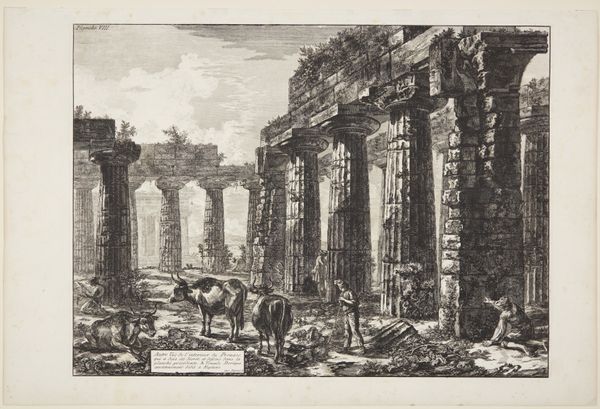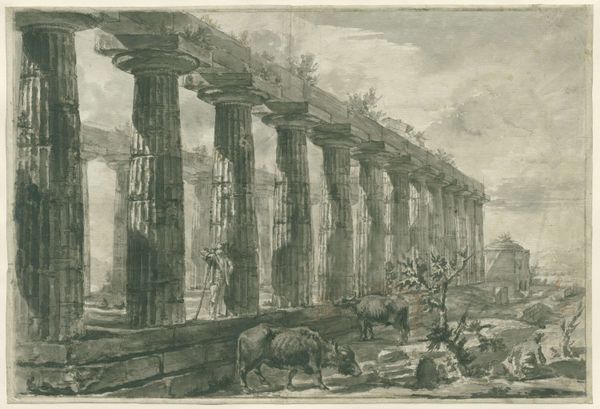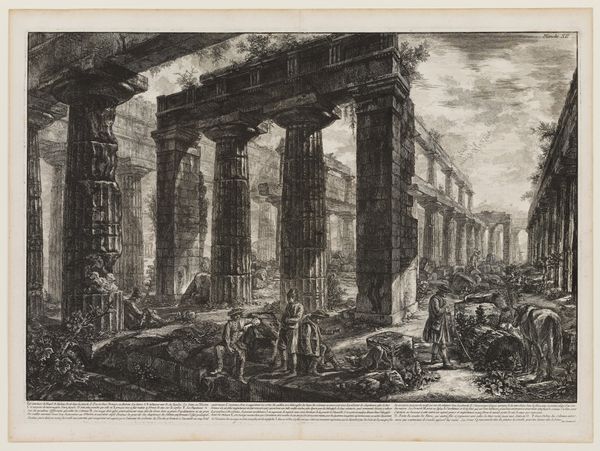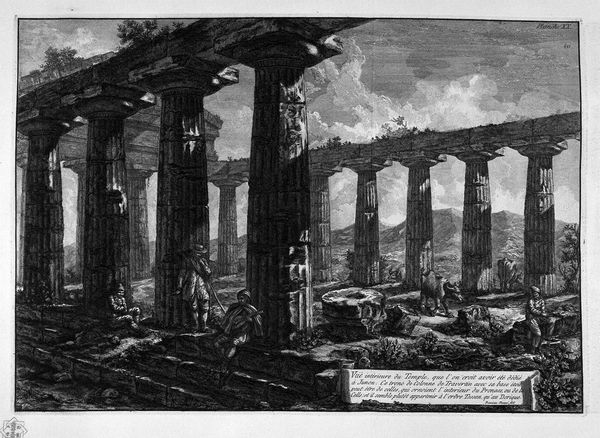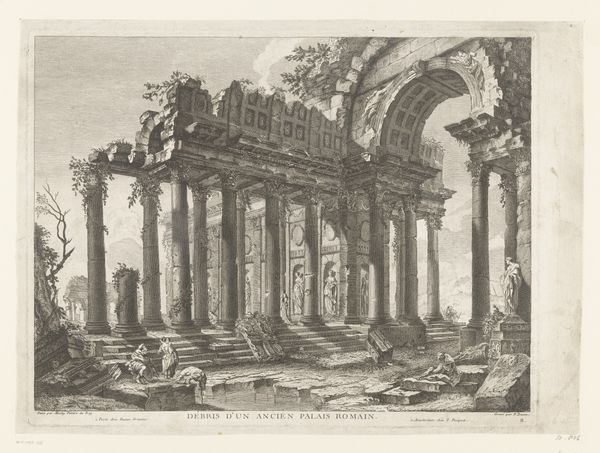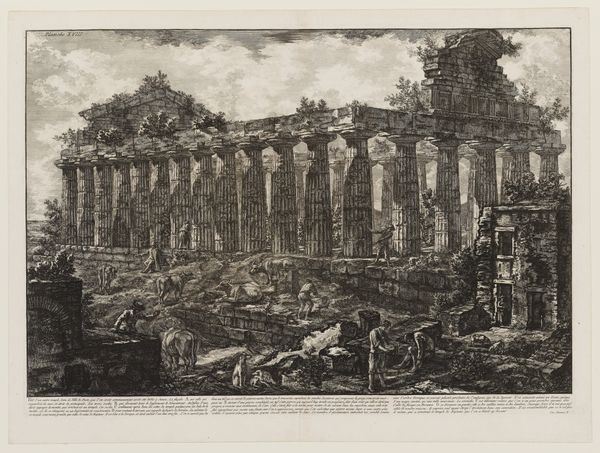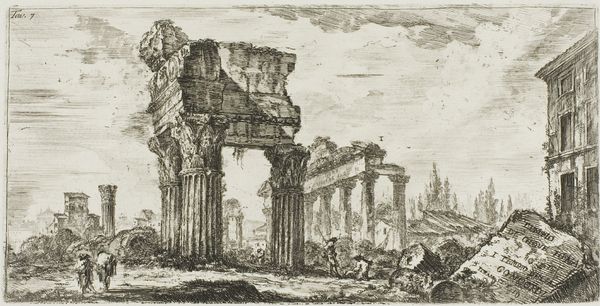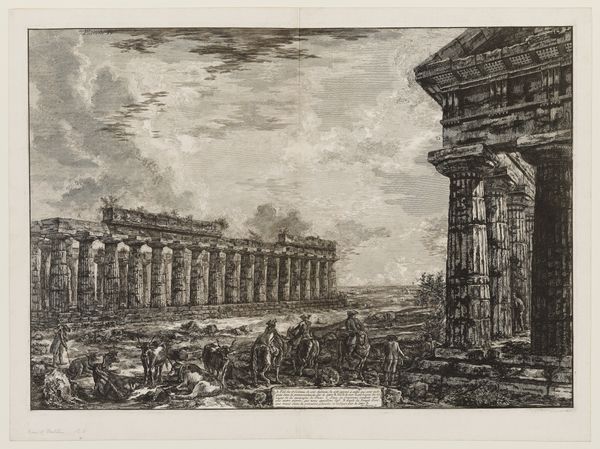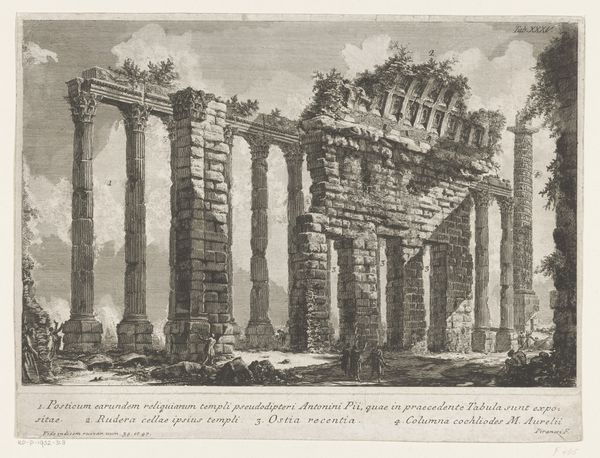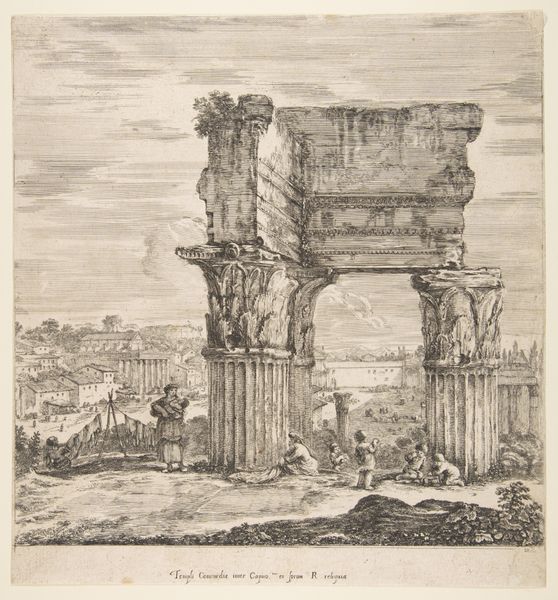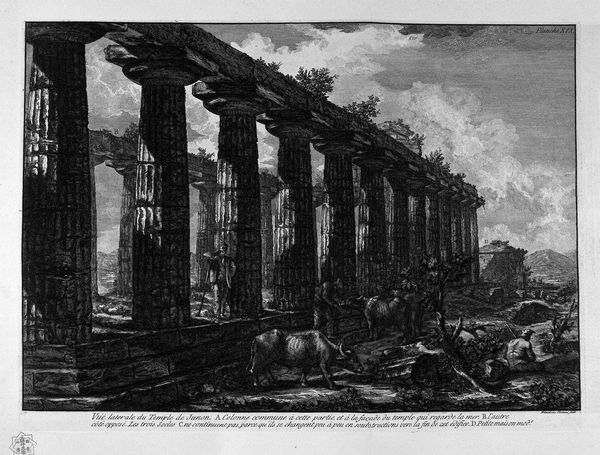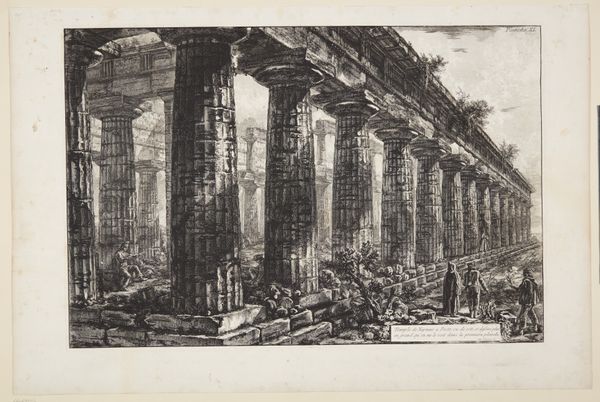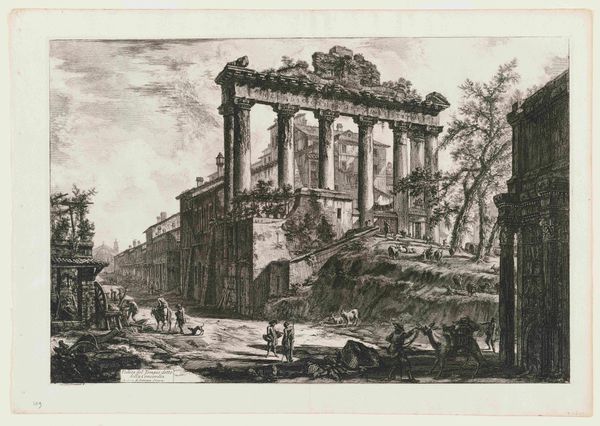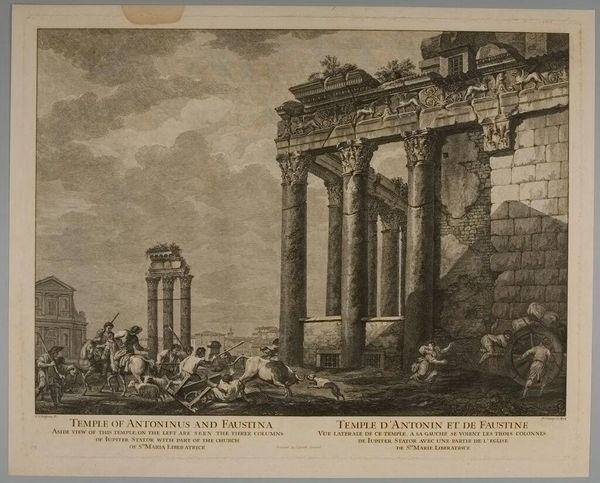
#
pencil drawn
#
aged paper
#
toned paper
#
light pencil work
#
pencil sketch
#
old engraving style
#
sketch book
#
personal sketchbook
#
pen-ink sketch
#
pencil work
Dimensions: height 475 mm, width 677 mm
Copyright: Rijks Museum: Open Domain
Editor: Here we have Francesco Piranesi's "Tempel van Juno te Paestum," created in 1778. It's an ink drawing, and its monumentality gives it a feeling of melancholy. What symbols jump out at you in this piece? Curator: The most striking symbol is, of course, the ruined temple itself. Consider Juno, a powerful Roman goddess, and how her temple, once a vibrant site of worship and communal identity, is depicted as a skeletal structure, eroded by time. What emotions does that contrast evoke for you? Editor: It's like a vanished empire, maybe a warning about hubris? But, how does this differ from just showing a ruin? Curator: Piranesi's choice of details matters. Notice the small figures dwarfed by the architecture. They become symbols of human impermanence against the backdrop of enduring, yet decaying, cultural memory. Does the presence of these figures amplify or diminish the feeling of melancholy for you? Editor: It amplifies it. Like, even people are insignificant, just visiting a ruin now. The broken columns, though, they repeat, which gives it a rhythm and a strange feeling of... still standing, almost? Curator: Precisely. The columns are Doric. Their sheer number – still upright, despite the damage – hints at the persistence of cultural ideals even after societal collapse. We see echoes of Juno, the divine feminine, who represents Roman virtues of marriage and empire, undermined yet resonating in the repeating pattern of pillars. Editor: So, even though it’s ruined, it is still saying something. I hadn't thought about the repetition like that. I guess ruins aren’t just ruins. Curator: Indeed, Piranesi captures not only physical decay but also the enduring symbolic power that even fragmented forms can hold. We glimpse echoes of beliefs, structures and value-systems long since faded.
Comments
No comments
Be the first to comment and join the conversation on the ultimate creative platform.
